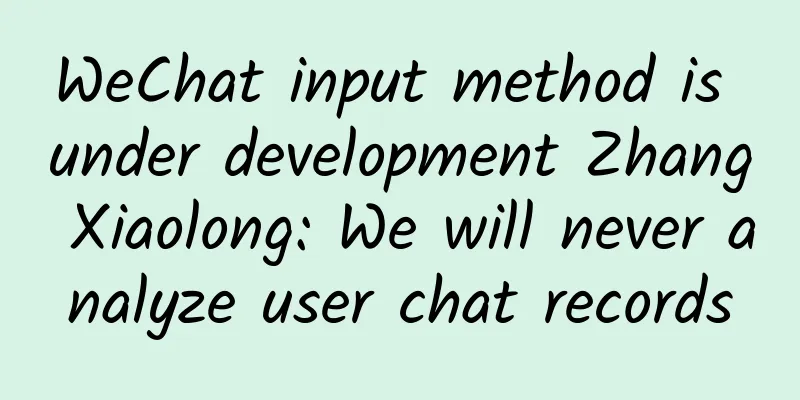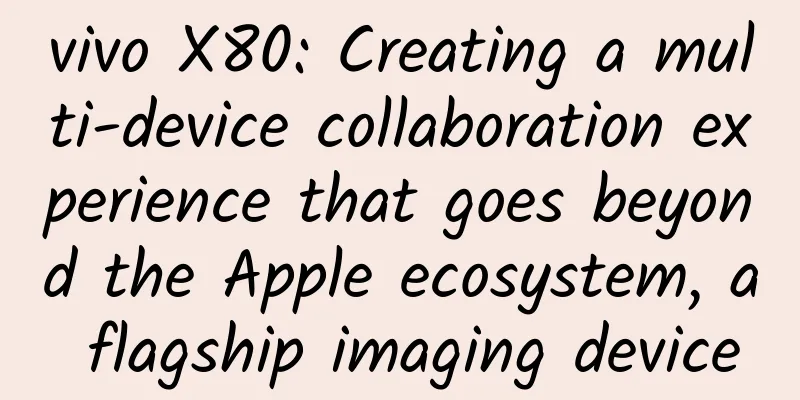Tencent Lubao Box: Troy in the guise of automotive intelligence

|
At the GMIC 2014 Global Mobile Internet Conference in May this year, Tencent launched its first in-vehicle smart hardware product, the "Lubao Box". Previously, Tencent Lubao's official website had opened a pre-order event, and according to the official website, the Lubao Box will be officially released at 12:00 on October 9th, priced at 199 yuan. As a major move by domestic Internet giants to get involved in the field of automotive intelligence after industry leaders such as Apple and Google launched the "in-vehicle system war", the Lubao Box is positioned as a driving companion for car owners. Simply put, the Lubao Box acts as a medium between the car and the owner. Through the detection equipment inside the car, the relevant data and information of the vehicle can be displayed on the owner's smartphone and other mobile devices. Although Tencent's launch of the Lubao Box has inevitably caused some people to exclaim that Tencent has found the entrance to the future "Internet of Vehicles", and some people are happy that smart cars are getting closer and closer to our actual lives, but what needs to be seen clearly is that this time Tencent did not set a good example for in-vehicle smart devices. To be precise, the Lubao Box is more like a piece of chicken ribs with no meat to eat, or even a "Trojan Horse" with endless hidden dangers. Why is it considered useless? The Lubao Box can mainly provide car owners with four major functions: smart navigation, full vehicle inspection, fault interpretation, and fuel consumption reminder. There is nothing much to say about the smart navigation. The main experience of the Lubao Box also requires the use of the Lubao App on the mobile terminal, so it seems that the navigation function it has may not be much different from installing a Tencent map directly on a smartphone. As for the various monitoring and interpretation of the vehicle's condition by the Lubao Box, it is achieved by connecting to the on-board automatic diagnostic system through the OBD interface currently available on mass-produced models, so the problem arises. First of all, this so-called OBD interface is not as powerful as described in the product promotion of the Roadbao Box. During the operation of the car, a large part of the core indicator data is privately owned by the car manufacturer and will not be easily opened. The standardized car driving data obtained through the OBD interface is actually very limited. Take fuel consumption analysis as an example. At present, most cars have built-in driving computers and output complete fuel consumption information through display devices such as instrument panels. It is redundant for the Lubao Box to do such work again. Moreover, if the fuel consumption data is calculated based on vehicle speed and air intake alone, it is impossible to be more accurate than the data provided by the fuel sensor. If the error of fuel calculation caused by different power on-board electronic equipment is added, the result obtained by the Lubao Box will have even less reference value. In addition, the Lobo Box cannot provide better solutions to problems encountered by car owners during vehicle use. Detecting vehicle failures is like using an air quality detector to detect the degree of air pollution. It lets you know that the living environment is polluted, but it cannot provide you with effective protective measures. The Roadbao Box can let you see the problems that have occurred in your car, but the way to solve the problem is undoubtedly to rely on the traditional means provided by car manufacturers and dealers. Roadside assistance services have long become an important selling point of 4S points of major car brands. Can Tencent's involvement make these services free? Obviously, it is not realistic. The slogan of the Lobo Box is "You can understand your car better", yes, it is just understanding. Why is it called a "Trojan Horse"? The launch of Tencent's Lubao Box will surely stimulate more and more manufacturers to join the world of smart cars and Internet cars. Although it seems that the Lubao Box is just a Master Lu on the car and a hardware detection tool, it can actually obtain the user's driving trajectory and geographic location. In other words, all car owners' privacy data is recorded through the Lubao Box. In the past, the road to the growth of smart car systems has been full of twists and turns, from our doubts about the stability of Android car systems to the "hacking" of Tesla's pure electric car. Making cars further intelligent and internet-based is itself not an absolutely reliable thing. Devices like the Road Treasure Box build a data bridge between mobile smart devices and cars, connecting isolated individual cars to the Internet. Not to mention whether an extra screen in the cab will distract the driver, once this type of device becomes a trend, Internet manufacturers will have more say in cars and have more requirements for obtaining on-board data, forcing car manufacturers to open up more vehicle information. In that case, hackers invading cars will no longer be a fantasy, and cars will be another big "computer" that cannot hide personal privacy. The arrival of car boxes, plug-and-play seems convenient, but we still need to be cautious about in-vehicle intelligent products. If the emergence of new equipment cannot bring qualitative improvement and change to the driving experience and user experience of traditional cars, but only becomes a tool for Internet companies to collect so-called "big data" and a channel for spying on users, then such car Internet products are better off not having them. As a winner of Toutiao's Qingyun Plan and Baijiahao's Bai+ Plan, the 2019 Baidu Digital Author of the Year, the Baijiahao's Most Popular Author in the Technology Field, the 2019 Sogou Technology and Culture Author, and the 2021 Baijiahao Quarterly Influential Creator, he has won many awards, including the 2013 Sohu Best Industry Media Person, the 2015 China New Media Entrepreneurship Competition Beijing Third Place, the 2015 Guangmang Experience Award, the 2015 China New Media Entrepreneurship Competition Finals Third Place, and the 2018 Baidu Dynamic Annual Powerful Celebrity. |
<<: iPhone 6/6 Plus Chinese version on sale day rush to buy guide
>>: The “mass counterattack” of domestic smartphones hides hidden concerns
Recommend
Mobile promotion conversion effect is poor? 2 steps to get everything done~
They say mobile now dominates the marketing battl...
BASF and Nornickel sign MoU to invest 400 million to build a plant in Europe
According to foreign media reports, BASF and Russ...
7 major channels for promoting Douyin and increasing followers!
If it is an enterprise account, it is recommended...
Chen Fahu: Using grains of sand and stones to piece together the history of humankind’s “climbing” on the Qinghai-Tibet Plateau
Recently, the Organization Department of the CPC ...
How to place ads on Kuaishou? HOW DOES IT PERFORM?
Kuaishou is one of the few short video communitie...
Tesla Optimus, orthopedic expert, silver-haired partner... This robot conference is full of useful information! Take a sneak peek!
On the morning of August 21, 2024 World Robot Con...
WeChat Reading: 5 APP fission growth methods based on paid membership
WeChat Reading has made good use of its product t...
Want to upgrade to iPhone 7? It’s not too late to check these minor issues before buying
With the global release of iPhone 7 and iPhone 7 ...
Be careful, this kind of rescue "trick" can cost someone's life!
Recently, an enthusiastic reader left a message t...
10 ways to attract new customers and boost your traffic
What I’m going to share today is how to use socia...
Luckin Coffee’s 5 key marketing points
The first quarter of 2022 is about to end, and th...
The layoffs at Station B are not surprising
At Bilibili's third quarter earnings call on ...
What is it like to go shopping at 2,774 meters below the sea?
She once rode a "Jiaolong" into the oce...
How difficult is it to grasp something you can't feel with your mind?
In the science fiction drama "Love, Death &a...
Come, let’s explain in simple terms what CPA and OCPC are.
Ever since Toutiao launched the CPA and OCPC mode...









